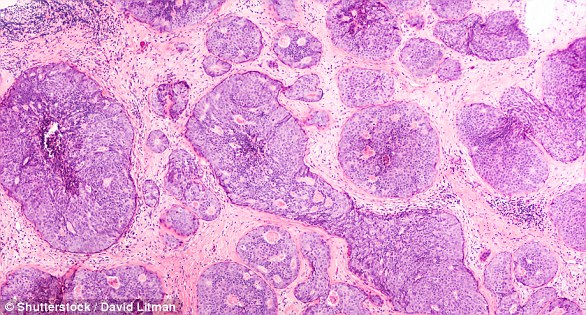Breast cancer patients at risk due to major shortage of NHS staff able to carry out specialist scans, radiographers warn


Breast cancer is one of the most common cancers in the world. There are more than 55,000 new cases each year in the UK and the disease claims the lives of 11,500 women. In the US, it affects 266,000 people a year and kills 40,000. But what causes it and how can it be treated?
What is breast cancer?
It is caused by a cancer cell that develops in the lining of a mammary gland or breast gland in one of the breasts.
When breast cancer has spread to surrounding tissue, it is called invasive. Some people are diagnosed with carcinoma in situ, where no cancer cells have grown beyond the duct or lobule.
Most cases develop in people over the age of 50, but younger women are sometimes affected. Breast cancer can develop in men, although this is rare.
Stage indicates how large the cancer is and whether it has spread. Stage 1 is the earliest stage and stage 4 means the cancer has spread to another part of the body.
The cancer cells are graded from low, which means slow growth, to high, which means fast growth. High-grade cancers are more likely to come back after they are first treated.
What causes breast cancer?
A cancerous tumor begins with a single abnormal cell. The exact reason why a cell becomes cancerous is unclear. It is thought that something damages or changes certain genes in the cell. This causes the cell to become abnormal and multiply ‘excessively’.
Although breast cancer can also develop for no apparent reason, there are a number of risk factors that can increase the chance of this happening, such as genetics.
What are the symptoms of breast cancer?
Usually, the first symptom is a painless lump in the breast. However, most lumps are not cancerous, but fluid-filled cysts, which are benign.
The first place breast cancer usually spreads is to the lymph nodes in the armpit. If this happens, you will get a swelling or lump in the armpit.
How is breast cancer diagnosed?
- Initial assessment: A doctor will examine your breasts and armpits. They may perform tests such as a mammogram, a special X-ray of your breast tissue that can indicate the possibility of tumors.
- Biopsy: A biopsy is when a small piece of tissue is removed from a part of the body. The sample is then examined under a microscope for abnormal cells. The sample can confirm or rule out cancer.
If you have breast cancer, you may need further tests to see if the cancer has spread. These may include blood tests, an ultrasound of the liver, or a chest X-ray.

How is breast cancer treated?
Treatment options that may be considered include surgery, chemotherapy, radiation therapy, and hormone therapy. Often, a combination of two or more of these treatments is used.
- Surgery: Breast-conserving surgery or removal of the affected breast, depending on the size of the tumor.
- Radiation therapy: A treatment that uses high-energy beams of radiation that are focused on cancerous tissue. This kills cancer cells or prevents them from multiplying. It is mainly used as an adjunct to surgery.
- Chemotherapy: A treatment for cancer using anticancer drugs that kill cancer cells or stop them from multiplying.
- Hormone treatments: Some types of breast cancer are affected by the “female” hormone estrogen, which can stimulate cancer cells to divide and multiply. Treatments that lower the levels of these hormones, or prevent them from working, are often used in people with breast cancer.
How successful is the treatment?
The outlook is best for those who are diagnosed when the cancer is small and has not spread. Surgical removal of a tumor at an early stage can offer a good chance of cure.
Thanks to routine mammograms that women between the ages of 50 and 70 receive, more and more breast cancers are being detected and treated at an early stage.
For more information, visit breastcancernow.org or call the toll-free helpline on 0808 800 6000




